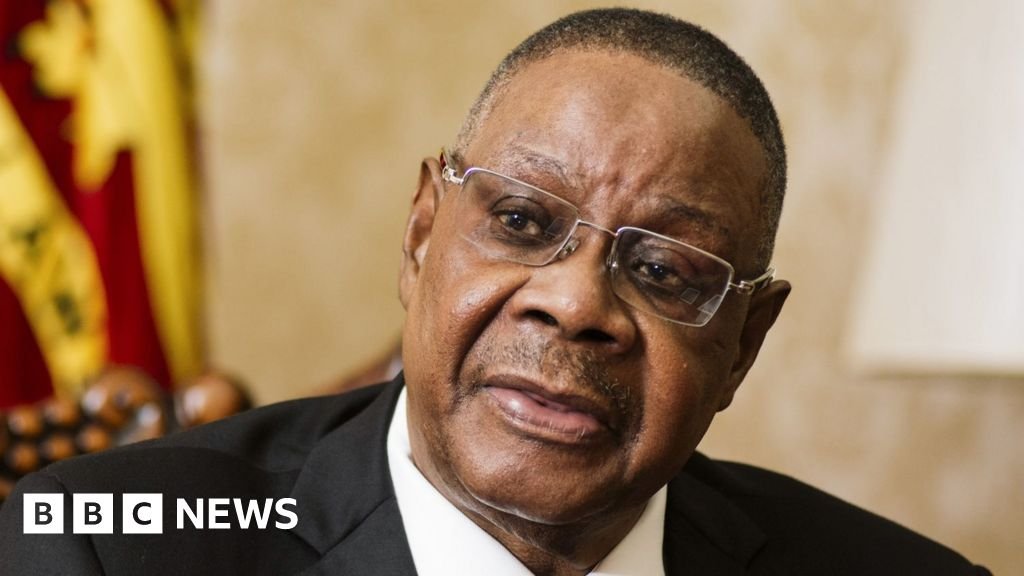Peter Mutharika: Malawi’s Comeback Leader
A Surprising Return to Power
In an unexpected turn of events, Peter Mutharika, who was ousted from Malawi’s presidency following a court ruling five years ago, has decisively reclaimed the office. His victory in the latest general election has enthralled political observers and citizens alike, marking a dramatic resurgence for the former leader who served from 2014 to 2020.
The Backstory of Mutharika’s Political Journey
Born in 1940 in the tea-producing region of Thyolo, Mutharika was raised by educators, which instilled in him a passion for learning. His educational pursuits took him from Malawi to prestigious institutions like Yale University, where he studied law, ultimately becoming a renowned professor specializing in international justice.
Mutharika’s entry into politics did not come until 2004, propelled by his brother Bingu’s presidency. Following Bingu’s sudden death in 2012, a tumultuous power struggle unfolded, leading to Mutharika facing treason charges—allegations he strongly dismissed as politically motivated. Despite these challenges, he emerged victorious in the 2014 elections, promising to improve the nation’s prospects.
The Decline Under Chakwera’s Leadership
Throughout his first term, Mutharika faced his share of criticisms, particularly regarding corruption claims. His administration, however, had notable successes, such as securing billions in Chinese loans for infrastructure development and drastically reducing inflation rates. In contrast, his successor, President Lazarus Chakwera, struggled with increasing inflation and economic turmoil, prompting Mutharika’s return to the political arena.
In a fierce campaign against Chakwera, Mutharika argued that Malawians yearned for the stability and prosperity of his earlier administration. His campaign resonated in areas traditionally aligned with Chakwera, including the capital city, Lilongwe.
Election and Campaign Dynamics
During the recent election campaign, Mutharika’s messages were simple yet powerful. He frequently asked voters, "Munandisowa eti? Mwakhaula eti?" which translates to “You miss me, right? You have suffered, right?” This local appeal aimed to connect with those disillusioned by the current economic climate.
Despite limited public appearances—contrasting sharply with Chakwera’s vibrant rallies—Mutharika’s strategic focus on the public’s economic grievances proved effective.
Health Concerns and Leadership Capability
As he returns to the presidency at 85 years old, questions about Mutharika’s health have emerged. Observers are keenly watching whether he possesses the stamina and vigor to tackle the significant challenges facing Malawi, including soaring inflation that has surpassed 30% and the aftermath of Cyclone Freddy, which has devastated local communities.
Mutharika’s Policy Focus and Future Challenges
Upon regaining the presidency, Mutharika faces a considerable in-tray filled with pressing issues. His critics will be closely scrutinizing his approach to economic recovery, infrastructure development, and governance reforms. The stark reality is that many Malawians have endured severe hardships:
- Economic Strain: Inflation has skyrocketed, leading to increased living costs.
- Natural Disasters: The impacts of Cyclone Freddy have left many in dire need.
- Public Trust: Mutharika’s past, marred by corruption allegations, creates skepticism about his return.
A Legacy in the Making
Mutharika emphasizes his commitment to lift Malawi back to better times. His administration’s earlier infrastructure initiatives led to substantial improvements in living conditions, garnering both praise and criticism. Moving forward, the challenge is to translate past successes into future stability.
Conclusion: A Nation in Anticipation
As Peter Mutharika prepares to take office once again, Malawi stands at a crossroads. With the nation watching closely, his ability to deliver on promises made during his campaign will shape his upcoming administration. Amidst hopes for a brighter future, the goal remains clear: revitalizing the country’s economy and restoring public trust in governance.
For further insights into Malawi’s political landscape and developments, visit reputable sources like BBC News and The Guardian.


